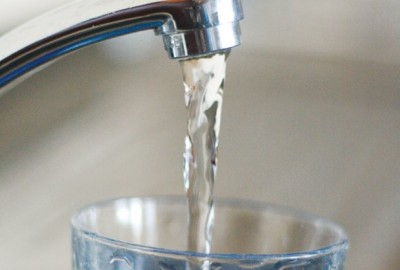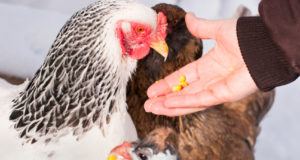
Image source: Williambritten.com
Humans can be animals, and as such, we can get pretty dirty before anything really bad happens. Sure, we may smell a little funky, but the reality is that people nowadays are probably a little too clean. With everything being anti-bacterial, humans are most likely making ourselves weaker by trying to be so clean.
But none of this means that you shouldn’t be a sanitary person. Beyond the smell, there are some serious health risks and side effects to being unsanitary. However, staying sanitary can be difficult if you’re in an off-grid situation with no running water or other modern amenities.
And if you’re going to be in an off-grid scenario for the long term, sanitation can get a bit tricky. Especially if you have limited or no running water. If your house doesn’t have a well, the stream freezes in the winter or something happens to your pipes, then you need to be prepared to be both clean and frugal with the water you do have.
It is important to bathe regularly, both for comfort and for health, so it is imperative to be able to provide quite a large amount of water per person, per day. You also will need to decide how and where to store this water.
Just a quick note: If you have reliable running water and there is a natural disaster on the way, such as an ice storm or hurricane, plug your bathtub and fill it. A bathtub usually holds more than 70 gallons of water that can be used for washing and flushing the toilet. You also could use it for cooking and drinking if you filter it properly. Either way, a filled bathtub can be a huge asset in case of emergency.
Everything You Need To Know To Become A Self-Sufficient Homeowner
Now, the rule of thumb is that you need one gallon of water per person, per day, for both drinking and sanitation. However, this amount is really only the bare minimum. This amount is recommended because most people won’t have to go more than a few days without running water.
There are a lot of factors to consider when deciding how much water you’ll need for all your needs, which include drinking, cooking and washing. The number of people is the most obvious one, but you also need to take into account the age and overall health of your people, along with the weather and average temperatures where you live.

Image source: HealthyDebates
If you know that you will have a source of water, such as melting snow, a spring, pond or stream, then you don’t need to store a lot of water. But melting snow can be a slow and laborious process and there’s always the possibility that an outdoor source of water could be contaminated. Therefore, it’s a good idea to have a supply of good drinking water on hand.
If you’re flying solo, you can most likely get by on a gallon and a half of water per day. This will give you plenty of water to wash yourself and anything else, like dishes or clothes, and also will be enough for you to drink and cook with.
However, if you’re in a very hot or very cold environment, you need to up that amount by at least another half gallon. While you’re going to be losing a lot of water to sweat in hot places, dry, cold air really sucks the moisture out of you as well. The only advantage of cold weather is that you need less water for bathing because your body won’t be perspiring as much.
If you’re not solo, then you really need to pay extra attention to the sanitation of others, as well as yourself. And some people will need more water than others. For instance, a pregnant woman will need at least two gallons per day because she will need to consume more water both for herself and the baby, and she will need to bathe more often.
You also need to take into account when that birth will happen. If you’re in an emergency situation or planning on a home birth, then you need to make sure that you have 50 to 60 gallons of water for the birth alone. You will need to thoroughly wash the baby and the mother, and provide plenty of clean linens as well. This is on top of the two gallons she will need daily leading up to and after the birth.
The elderly and young may require more water for sanitation, too. Both age groups can suffer from incontinence and similar issues. They fall into the two-gallon-a-day group, along with the sick and injured. All of these people may be more susceptible to infections and disease due to weakened immune systems. If anyone in your group is bed bound, then you should probably up the amount to three gallons per day to provide for in-bed baths and the like.
For long-term, off-grid situations, sanitation should be high on the priority list. With some preparation and planning, you can be clean, healthy and sanitary just by making sure you have enough clean water for you and your group.
What would you add to this list? Share your thoughts in the section below:
Harness The Amazing Power Of Nature’s Most Remarkable Healer: Vinegar
 Off The Grid News Better Ideas For Off The Grid Living
Off The Grid News Better Ideas For Off The Grid Living



